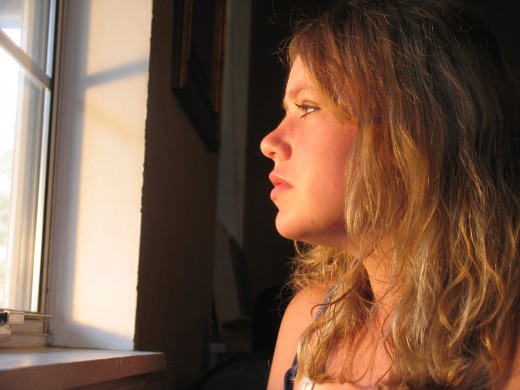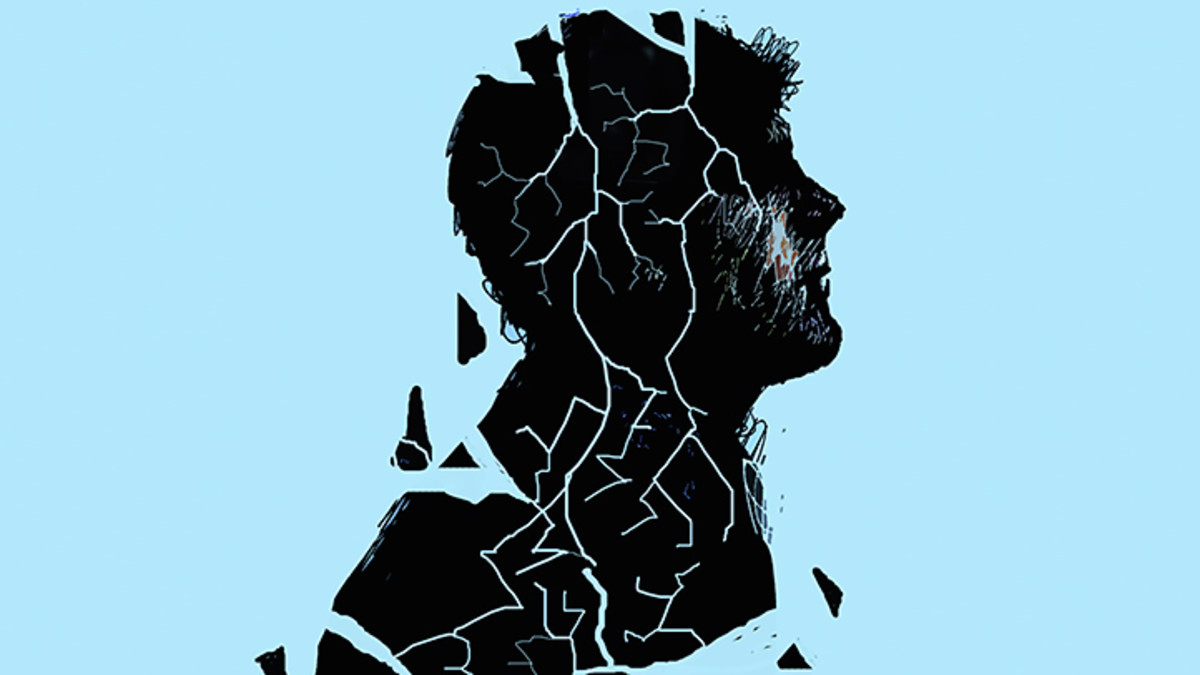What is Clinically Depressed? Understanding Symptoms of Clinical Depression and Steps to Take
Clinical Depression is More Than Just Sadness

Understanding Depression
Get over it! Snap out of it! What’s your problem? These phrases of “encouragement” are far from helpful in helping someone who is suffering from depression to “get over it.”
I am continually amazed when people have this attitude, this ignorance about what depression really is. Maybe that’s because I know what it feels like to not be able to “get over it.” Understanding the difference between some temporary depressive state and clinical depression is important. "Normal" folks might feel sad or "depressed" for a few days or even a few weeks, but it does pass as life circumstances improve. Those who are clincially depressed, however, struggle with feelings of sadness--and often hopelessness--even when their lives are going along just fine on the outside.
I remember as a child feeling different from the other kids; I felt distant and alone at times. I remember sitting in my fifth grade classroom writing poetry in notebooks while my friends played games in the back of the room. I've always felt melancholy, no matter how great my life was going. It took my happy, optimistic mom a long time to realize that I couldn't just "snap out of it" because it was my genetic makeup. Even now she has trouble wrapping her brain around the fact that people can't make themselves more positive by just thinking that way. But she did tell me recently that we should just "do the best with what we have to work with." (Love you, Mom!) For some of us, it's a daily struggle to attempt to make positive steps to feel better or sometimes to just get through the day. Baby steps, baby steps. That's what I tell myself.
Try as I might, I am never able to “snap out of it.” I'm not saying that I'm clinically depressed (at least not diagnosed), but I have had a strong bent toward melancholy since I was a young girl. And maybe my “problem” is a brain deficiency that I was born with. So please don’t tell me just to “get over it.” Would you tell a schizophrenic to stop having hallucinations or someone who is bipolar to just quit having those darn mood swings? Would you tell a diabetic to stop having incidences of low blood sugar or someone with heart issues to stop having them?
Happiness is NOT always a choice.
I'm not denying that individuals who are depressed can do things to make themselves feel better. Some of the advice that I hear: think positive thoughts; surround yourself with friends or family; get plenty of sleep; eat right; exercise. My response? Yes, these are all great tips, but for the depressed person, telling them to choose to be happy is like telling them to decide to grow another four inches taller.Thinking positive thoughts for the depressed person takes practice--and time. And exercise? While exercise is credited with producing endorphins that make a person feel better, the deeply depressed person sometimes can’t even get out of bed, much less go for a workout at the gym, or even take a walk around the block.
For those who don't understand clinical depression, think of it as an illness or condition, like any other--because it is. Do we tell people with high blood pressure to get over it and "choose" to have good blood pressure? NO, we don’t. Because it is a medical condition, just like depression. Both can and should be treated, but that does not mean they can be cured. Both can be treated in similar ways—with medication, exercise, but people suffering from either need time to find what works to treat their symptoms and help them to feel better. It may take many tries to find a medication that works to make the chemically-challenged brain feel better. It may take repeat attempts for the continually depressed person to find ways to feel better, to make gradual changes to be able to better cope with the daily sadness that persists inside.
People have good intentions, and it is good to try to take small steps in making oneself feel better. I know that. But, still, we must keep in mind that many people are clinically depressed. It is not a weakness or something easily changed. Depression is a natural occurrence in life, as many events are unplanned and traumatic in this life. For those who are “normal,” when the situation betters itself, the depression passes. For the truly depressed person, that feeling of sadness persists and must be continually dealt with.
How does depression feel?
- Is Depression Real? - a Poem
Is depression real? This poem addresses the thoughts, feelings, and often dark reality of the person suffering from depression.
Taking "Baby Steps" to Help Depression
So what is one to do who feels continually sad, down, and "depressed." Here are some things that I can recommend through personal experience, things that I have tried or am still attempting. While not all of these may work for any given individual, they are suggestions that might. My recommendation is to do the best you can with what you have, and, hopefully, you will have people around you who understand that, while you are trying, it isn't easy.
- Talk to your doctor. Consider trying an anti-depressant. Unfortunately, I haven't found anything that has worked, but I haven't tried many. I prefer to go without the medications, anyway, so I'm trying other smaller steps to make myself feel better.
- Consider counseling. At least find a confidante. I have several close friends in my life that I can confide in about feelings or simply vent to about daily pressures and frustrations.
- Try to exercise, even if it's only for ten minutes. My doctor tells me that even ten minutes can help a person. I've been trying to use my dog to make myself feel guilty enough to get up and take him for a walk. He loves taking walks, and it makes me feel happy for him and better about myself for getting some exercise.
- Try to eat right. I love food, so I have no problem with this one. My biggest problem in this area is eating too much when my mood is really down. Some people have the opposite problem--no appetite when they're depressed. Just keep trying. If I overdo it (eating) one day, I know that there is still tomorrow to make a fresh start.
- Get enough rest. This really does seem to make a difference. I'm trying to set a regular bedtime, a difficult task since I've always been a night owl.
- Find a pastime you're passionate about. I've piddled around with a lot of different things, but lately I have re-discovered my passion for writing and often throw myself into it for hours. Even if you're not a writer, you might find it therapeutic to start keeping track of how you feel in a journal. If you can't make yourself do that, keep dabbling in something until you find something you can lose yourself in.
- Try, try, try to replace your negative thoughts with positive ones. I repeat "try" three times because I personally know how hard it is to do when our brains are not wired that way. Tell yourself something positive, even it it's as simple as, "I will feel better, I will feel better, I will feel better."
Above all, I try not to beat myself up. When I don't meet my goals, when I don't respond to life's disappointments as I think I should, when I respond negatively to stress, I tell myself that tomorrow is another day. I remind myself that I have a lot of positive personal qualities and some really good things in my life, and that we all have conditions or burdens we must live with. I also remind myself to take baby steps, as Bill Murray did in the movie, "What About Bob?" Baby steps, baby steps. One day at a time. My mantra for living.
Movie: What About Bob? "Baby Steps"
© 2011 Victoria Lynn








